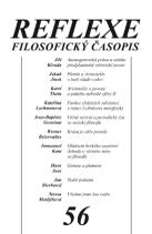Language between antinomies – Some Comments on Husserl's Philosophy of Language in the Logical Investigations
In the Logical Investigations, Husserl seeks to thematise the phenomenon of language without relying on any preliminary theoretical judgements. In this way, he achieves a number valuable results: he presents a description of the linguistic praxis as an interplay of subjective and objective aspects and as a connection of different linguistic functions; he refutes the semantic fallacy, i.e. the notion that the meaning of an expression is its corresponding act of phantasy or its referential object; importantly, he reveals the ideal character of the linguistic sign and explains the indispensability of language for the realisation of complicated acts of thought. Yet on the other side, the analysis of language, as performed in the Logical Investigations, is clearly not guided by an interest in language as such; rather, it is only meant to support the overall construction of the work. Due to his preliminary theoretical decisions, Husserl isolates several essential aspects of the investigated phenomenon from their natural context and transforms them inappropriately into opposites. In the second step, he seeks to bridge these antinomical characterizations of language by means of artificial constructions and unjustified hierarchizations. We can discern the following five antinomies: analysis of language as a necessary starting point of all logical investigations vs. independence of the validity of logical investigations on all and any language; inexistence, presence, soliloquy vs. existence, non-presence, communication; ideality and objectivity of meaning vs. reality and subjectivity of meaning-intention; ideality of expression vs. reality of expression; a priori grammar vs. empirical grammars; language as an accidental support of thought vs. language as an inevitable means of thought.
Backlinks: Reflexe 26
